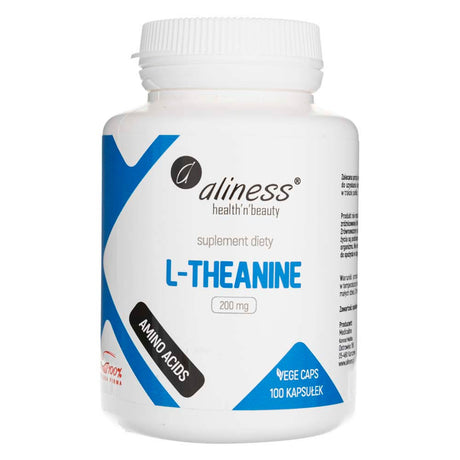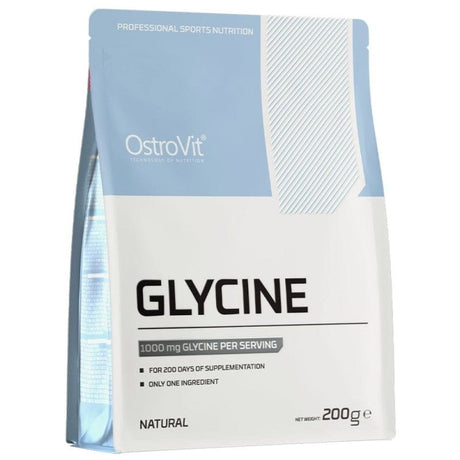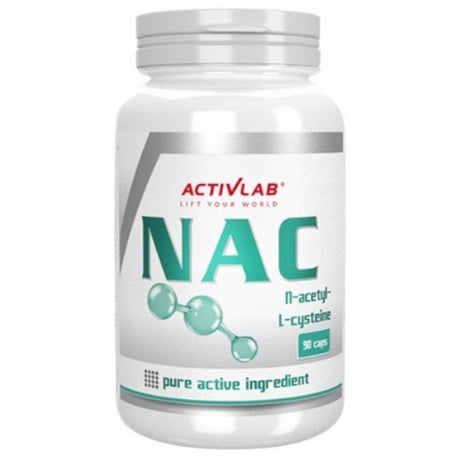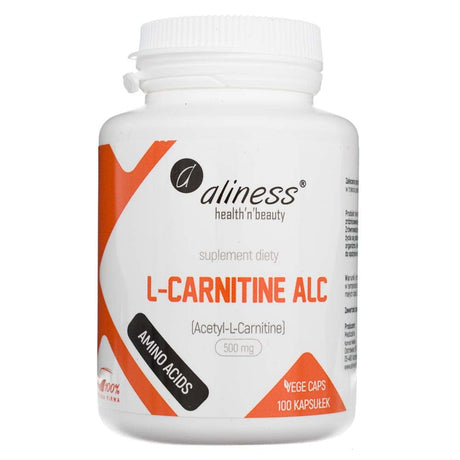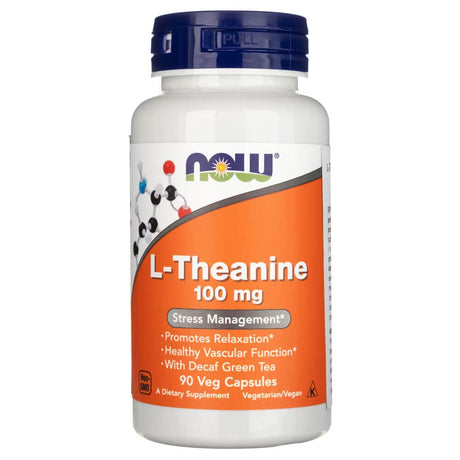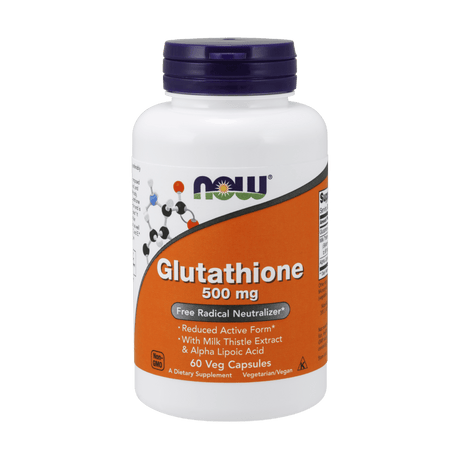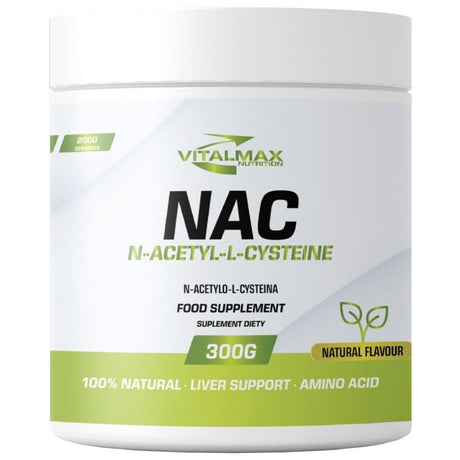Swanson
Swanson NAC N-acetil cisteīns 600 mg - 100 kapsulas
Regulārā cena €14.69Vienības cena€0.15 / itemNav pieejamsSwanson
Swanson L-triptofāns 500 mg - 60 kapsulas
Regulārā cena €7.69Vienības cena€0.13 / itemNav pieejamsAliness
Aliness L-theanīns 200 mg - 100 augu kapsulas
Regulārā cena €10.39Vienības cena€0.10 / itemNav pieejamsOstrovit
Ostrovit L-Theanine - 90 Veg Kapsulas
Pārdošanas cena €6.20 Regulārā cena €6.89Vienības cena€0.07 / itemNav pieejamsSwanson
Swanson L-glutamīns 500 mg - 100 kapsulas
Regulārā cena €6.59Vienības cena€0.07 / itemNav pieejamsSwanson
Swanson L-lizīns 500 mg - 100 kapsulas
Regulārā cena €4.99Vienības cena€0.05 / itemNav pieejamsSwanson
Swanson L-tirozīns 500 mg - 100 kapsulas
Regulārā cena €7.79Vienības cena€0.08 / itemNav pieejamsSwanson
Swanson L-arginīns - maksimālais stiprums 850 mg - 90 kapsulas
Regulārā cena €8.79Vienības cena€0.10 / itemNav pieejamsNow Foods
Now Foods NAC N-acetil cisteīns 600 mg - 100 augu kapsulas
Regulārā cena €20.29Vienības cena€0.20 / itemNav pieejamsNow Foods
Now Foods L-lizīns 1000 mg - 250 tabletes
Regulārā cena €20.59Vienības cena€0.08 / itemNav pieejamsSwanson
Swanson L-arginīns 500 mg - 100 kapsulas
Regulārā cena €6.29Vienības cena€0.06 / itemNav pieejamsOstrovit
Ostrovit Supreme Pure Glicīns, dabīgs - 200 g
Pārdošanas cena €5.75 Regulārā cena €6.39Vienības cena€28.75 / kgNav pieejamsVitaler's
Vitaler's Sporta citrulīns (L-citrulīna malāts), Pulveris - 500 g
Regulārā cena €11.49Vienības cena€22.98 / kgNav pieejamsNow Foods
Now Foods NAC N-acetil cisteīns 600 mg - 250 augu kapsulas
Regulārā cena €36.49Vienības cena€0.15 / itemNav pieejamsHaya Labs
Haya Labs Acetil L-karnitīns 1000 mg - 100 kapsulas
Regulārā cena €11.99Vienības cena€0.12 / itemNav pieejamsAliness
Aliness L-triptofāns 500 mg - 100 augu kapsulas
Regulārā cena €9.19Vienības cena€0.09 / itemNav pieejamsHaya Labs
Haya Labs Alpha GPC 300 mg - 60 kapsulas
Regulārā cena €13.99Vienības cena€0.23 / itemNav pieejamsNow Foods
Now Foods L-tirozīns 500 mg - 120 kapsulas
Regulārā cena €12.09Vienības cena€0.10 / itemNav pieejamsActivlab
Activlab NAC (N-acetil-L-cisteīns) 500 mg - 90 kapsulas
Regulārā cena €9.39Vienības cena€0.10 / itemNav pieejamsAliness
Aliness L-karnitīns ALC 500 mg - 100 kapsulas
Regulārā cena €11.79Vienības cena€0.12 / itemNav pieejamsNow Foods
Now Foods L-glutamīns 500 mg - 120 augu kapsulas
Regulārā cena €11.29Vienības cena€0.09 / itemNav pieejamsNow Foods
Now Foods L-theanīns 100 mg - 120 augu kapsulas
Regulārā cena €13.59Vienības cena€0.11 / itemNav pieejamsNow Foods
Now Foods Glutations 500 mg - 60 augu kapsulas
Regulārā cena €27.59Vienības cena€0.46 / itemNav pieejamsVitalmax
Vitalmax NAC (N-acetil-L-cisteīns) pulveris - 300 g
Regulārā cena €14.39Vienības cena€47.97 / kgNav pieejams
Aminoskābes - būtiskas ikdienas uztura sastāvdaļas
Aminoskābes ir olbaltumvielu pamatelementi. Tās ir organiski ķīmiski savienojumi, bez kuriem nebūtu iespējama pareiza organisma darbība. Starp tām ir olbaltumvielu aminoskābes, , kurām ir daudzas svarīgas funkcijas, piemēram, tās atbalsta vielmaiņas procesus, ietekmē nervu sistēmu vai asinsrites sistēmu. Svarīgas ir gan eksogēnās aminoskābes, t. i., aminoskābes, kas tiek piegādātas ar pārtiku, gan endogēnās aminoskābes, kuras organisms ražo pats.. Lai izprastu, cik svarīgi ir uzturā lietot pietiekami daudz olbaltumvielu, ir jāzina to īpašības.
Aminoskābes - kas tās ir un kādas ir to funkcijas?
Aminoskābes piedalās olbaltumvielu sintēzē, regulē vielmaiņas procesus un ir svarīgas arī hormonu ražošanai . Tās ietekmē aknu darbību, organisma detoksikāciju, kā arī spēlē nozīmīgu lomu pēc treniņa r Ecover y. Tiem, kas regulāri trenējas, aminoskābes veicina labāku izturību un ļauj veikt intensīvus un efektīvus treniņus. Ir daudz aminoskābju, veidu, un to īpašības ietekmē dažādus mūsu veselības, aspektus, tostarp anaboliskos procesus, kas palīdz saglabāt vai palielināt spēku un muskuļu masu.
Pamatvielas un skābes aminoskābes
Aminoskābes, cita starpā, iedala pamatvielās un skābes aminoskābēs. Pirmajām, papildu aminogrupas dēļ, piemīt sārmaina reakcija. Turpretī skābajām aminoskābēm, kurām ir karboksilgrupa, raksturīga skāba reakcija. Piemēram, asparagīnskābe un glutamīnskābe, kas ir būtiskas slāpekļa metabolismam. Pareiza aminoskābju izvēle veicina bioķīmisko līdzsvaru organismā.
Kā apgādāt ar aminoskābēm?
Galvenais aminoskābju avots ir daudzveidīgs un sabalansēts uzturs, kura pamatā ir tādi produkti kā gaļa, zivis, olas, piena produkti un pākšaugi. Ja to trūkst, piemēram, nesabalansēta uztura vai veselības stāvokļa dēļ, ir vērts apsvērt uztura bagātinātāju, lietošanu . Īpaši, cilvēki, kas intensīvi trenējas, novērtē BCAA aminoskābes , t. i., sazarotas ķēdes aminoskābes, kas ir svarīgas muskuļu reģenerācijai un muskuļu noārdīšanās novēršanai.
Aminoskābju piedevas var pielāgot individuālām vajadzībām. Daži ražotāji iesaka lietot aminoskābes no rīta, kad tās labi uzsūcas, citi iesaka tās lietot pirms vai pēc treniņa. Fiziski aktīviem cilvēkiem, var būt īpaši svarīgi lietot uztura bagātinātājus uzreiz pēc treniņa, veicinot ātrāku r Ecover y un neitralizējot muskuļu bojājumus. Regulāra uztura bagātinātāju lietošana var veicināt spēka uzturēšanu un palīdzēt sasniegt sportiskos mērķus, piemēram, muskuļu masas pieaugumu .
Sēra un citu veidu aminoskābju loma
Dažas aminoskābes, piemēram, metionīns un cisteīns, kas pieder pie tā sauktajām sēra aminoskābēm, atbalsta detoksikācijas un olbaltumvielu sintēzes procesus.. Pateicoties tām, organisms efektīvāk neitralizē toksiskās vielas. Savukārt, aminoskābes kopumā ir ārkārtīgi plaša savienojumu grupa, kas ir svarīga vielmaiņas līdzsvaram un audu reģenerācijai.
Aminoskābju resursi uzturā
Gan dzīvnieku, gan augu olbaltumvielās ir daudz aminoskābju. Gaļa, mājputnu gaļa un zivis ir vērtīgi neaizvietojamo aminoskābju avoti . Olas nodrošina augstas kvalitātes olbaltumvielas un aminoskābes, piena produkti (piens, jogurts, jogurts, kefīrs, siers, nodrošina plašu uzturvielu spektru. Arī pākšaugi, piemēram, aunazirņi, lēcas un pupas, nodrošina aminoskābes un šķiedrvielas. Rieksti un sēklas papildina uzturu ar veselīgiem taukiem, vitamīniem un minerālvielām. Ir svarīgi dažādot olbaltumvielu avotus, lai nodrošinātu pilnvērtīgu aminogrammu.
Aminoskābes sportistu un fiziski aktīvu cilvēku uzturā
Sportistiem un fiziski aktīviem cilvēkiem , ir īpaši svarīgi uzturā nodrošināt pietiekamu aminoskābju daudzumu. Nodrošinot atbilstošas aminoskābes, tostarp BCAA aminoskābes , mēs atbalstām pēotreniņa reģenerāciju, uzlabojam muskuļu izturību un spēku, un aizsargājam tos no nelabvēlīgiem katabolisma procesiem. Šāds uztura atbalsts var uzlabot sportisko sniegumu un palielināt treniņu efektivitāti.
Vai aminoskābju pārpalikums ir kaitīgs?
Lietojot ar mēru un ievērojot ražotāju un speciālistu ieteikumus, aminoskābju piedevas ir drošas. Tomēr, pārmērīga lietošana var radīt slodzi nierēm un aknām. Tāpēc pirms papildu aminoskābju avotu ieviešanas uzturā ir ieteicams konsultēties ar ārstu vai uztura speciālistu.. Jāatceras, ka veselīga dzīvesveida pamatā ir sabalansēts uzturs, kas bagāts ar pilnvērtīgām olbaltumvielām, vitamīniem un minerālvielām, saliktiem ogļhidrātiem, šķiedrvielām un veselīgiem taukiem.
Aminoskābes vegāniem un veģetāriešiem
Aminoskābes var nodrošināt arī cilvēki, kas ievēro augu izcelsmes diētu. Enough Tādi produkti kā sojas, tofu, tempeh, pākšaugi, rieksti, sēklas vai pilngraudu produkti nodrošina visas nepieciešamās aminoskābes, lai gan dažkārt ir nepieciešams kombinēt dažādus olbaltumvielu avotus, lai iegūtu pilnvērtīgu aminoskābju profilu. Atbilstoša uztura plānošana vai dietologa palīdzība ļauj apmierināt organisma vajadzības bez dzīvnieku izcelsmes produktiem.
Aminoskābju ietekme uz r Ecover y un anabolismu
Aminoskābēm ir svarīga loma procesos, kas saistīti ar organisma reģenerāciju un muskuļu masas veidošanu. Pēc intensīvas fiziskās slodzes, organismam nepieciešama bojāto muskuļu šķiedru atjaunošana, un aminoskābes ir būtisks materiāls to atjaunošanai. Šajā kontekstā, pareiza aminoskābju izvēle palīdz optimizēt reģenerācijas procesu, mazina noguruma sajūtu un atbalsta muskuļu masas veidošanos un uzturēšanu. Aminoskābju lietošana var būt īpaši izdevīga cilvēkiem, kuri intensīvi trenējas, un piedalās sporta sacensībās vai arī nodarbojas ar sportu izklaidējoši, lai uzlabotu savu fizisko formu un figūru.
Aminoskābes pret dažādiem uztura bagātinātāju veidiem
Tirgū ir pieejami dažāda veida uztura bagātinātāji, kas satur aminoskābes, piemēram, kapsulas, tabletes, pulveri vai gatavi dzērieni. Konkrētas formas izvēle ir atkarīga no vēlmēm un individuālajām vajadzībām. Daži produkti apvieno aminoskābes ar citām uzturvielām, piemēram, vitamīniem, minerālvielām vai antioksidantiem, lai palīdzētu visaptveroši uzlabot veselību un veiktspēju. Galvenais ir rūpīgi izvēlēties uztura bagātinātājus un pārbaudīt to kvalitāti un izcelsmi.
Aminoskābes vispārējās veselības kontekstā
Papildus aspektiem, kas saistīti ar sportu un fizisko aktivitāti, aminoskābes ir svarīgas arī vispārējai veselībai. Pienācīgs aminoskābju daudzums ietekmē imūnsistēmas darbību, kā arī ādas, matu un nagu stāvokli, kā arī atbalsta reģenerācijas procesus pēc traumām vai slimībām.. Pareiza aminoskābju līdzsvara uzturēšana var labvēlīgi ietekmēt garastāvokli, enerģijas līmeni un koncentrēšanās spējas, kas ir svarīgi ne tikai sportistiem, bet arī cilvēkiem, kuri piekopj intensīvu dzīvesveidu.
Aminoskābes un vielmaiņa un anaboliskie procesi
Aminoskābju pietiekams daudzums veicina vielmaiņas optimizāciju, ietekmējot enerģijas vielmaiņu un organisma spēju izmantot uzturvielas. Šo procesu regulēšana ir īpaši svarīga intensīvu treniņu kontekstā, kad organismam nepieciešama efektīva enerģijas pārvaldība. Pietiekams aminoskābju daudzums var atbalstīt anaboliskos procesus, palielinot muskuļu augšanas un pārbūves potenciālu, kas nozīmē labākus sportiskos rezultātus un uzlabotu augumu.
Aminoskābes ir atslēga uz labāku ķermeņa funkcionēšanu un dzīves kvalitātes uzlabošanos. To pietiekams nodrošinājums, kombinācijā ar sabalansētu uzturu un pareizi izvēlētām fiziskām aktivitātēm, var sniegt daudz priekšrocību veselībai, veiktspējai, fitnesam un labsajūtai. Neatkarīgi no dzīvesveida, ir vērts atzīmēt aminoskābju nozīmi muskuļu veidošanā un atjaunošanā, atbalstot vielmaiņu un veidojot anaboliskos procesus. Tādējādi, ikviens neatkarīgi no, pieredzes līmeņa, var pilnībā izmantot priekšrocības, ko sniedz sabalansēts uzturs un saprātīgi izvēlēti aminoskābju uztura bagātinātāji.


